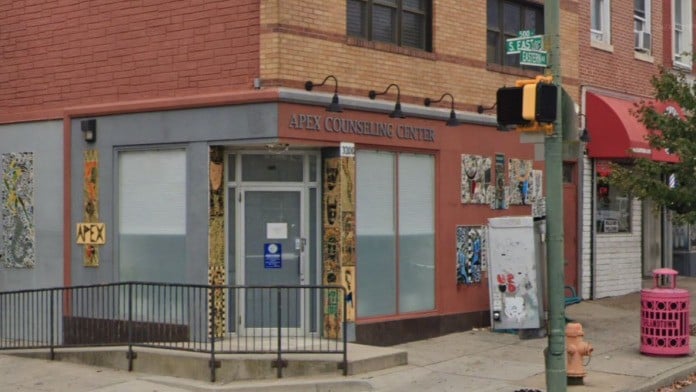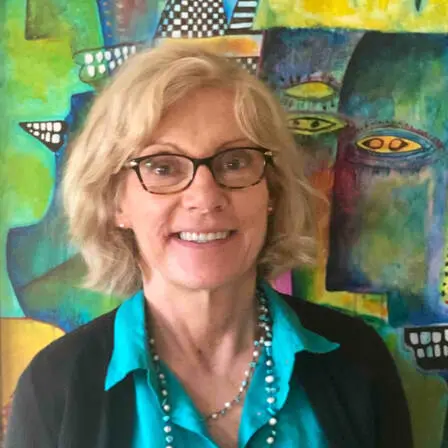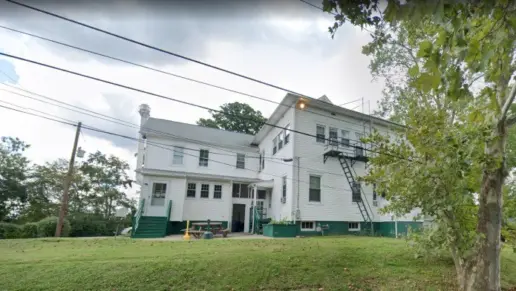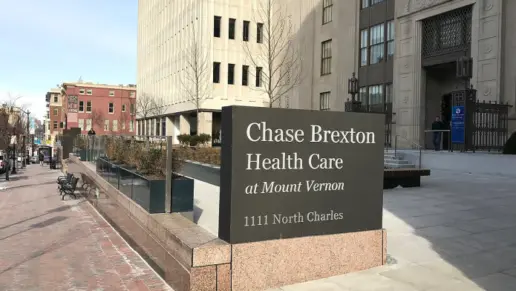I had heard from other people that the staff at Apex Counseling Center were very rude, but that was not my experience at all. They were very kind and understanding with my daughter. Would recommend to someone else!
About Apex Counseling Center
Apex Counseling Center, situated in Baltimore, Maryland, is all about making mental health care personal and easy to access. They have a team of therapists, doctors and social workers who help people of all ages deal with anxiety, stress, trauma and relationship struggles.
What stands out to me is how flexible they are. They do therapy in their office but also work with people in rehab programs and adult daycare centers. In some cases they can even meet people somewhere else if needed. They also offer evening and Saturday appointments which is great for anyone with a busy schedule.
Affordable Payment Options
They offer individual, couples and family therapy as well as psychiatric assessments and medication management. Their therapists use different approaches like cognitive behavioral therapy and even hypnosis, depending on what works best for each person.
Therapy sessions start at $170 for the first visit and follow ups range from $130 to $150. If you have insurance you usually just pay a copay which is around $20. They take Medicaid and Medicare and even have financial hardship options for those who qualify.
Accessible Mental Health Care in Baltimore
One thing I like is that they help people coming out of hospitals or the justice system. There is a Maryland program that covers mental health treatment for some people in those situations.
Overall they do a great job of making mental health care feel approachable. Whether someone is dealing with stress, past trauma or just needs support during a tough time, they offer a welcoming and understanding place to start.
Latest Reviews
Rehab Score
Gallery

Location
Other Forms of Payment
Medicaid is a state based program that helps lower-income individuals and families pay for healthcare. Medicaid covers addiction treatment so those enrolled can use their coverage to pay for rehab. When a program accepts Medicaid the client often pays very little or nothing out of their own pocket.
Private insurance refers to any kind of healthcare coverage that isn't from the state or federal government. This includes individual and family plans offered by an employer or purchased from the Insurance Marketplace. Every plan will have different requirements and out of pocket costs so be sure to get the full details before you start treatment.
Self-pay involves paying for treatment out of your own pocket. You can use savings or credit, get a personal loan, or receive help from family and friends to fund your treatment. If you don't have insurance or your insurance plan doesn't cover a specific program, self-pay can help ensure you still get the care you need.
Medicare is a federal program that provides health insurance for those 65 and older. It also serves people under 65 with chronic and disabling health challenges. To use Medicare for addiction treatment you need to find a program that accepts Medicare and is in network with your plan. Out of pocket costs and preauthorization requirements vary, so always check with your provider.
Addiction Treatments
Levels of Care
Treatments
Many of those suffering from addiction also suffer from mental or emotional illnesses like schizophrenia, bipolar disorder, depression, or anxiety disorders. Rehab and other substance abuse facilities treating those with a dual diagnosis or co-occurring disorder administer psychiatric treatment to address the person's mental health issue in addition to drug and alcohol rehabilitation.
Mental health rehabs focus on helping individuals recover from mental illnesses like bipolar disorder, clinical depression, anxiety disorders, schizophrenia, and more. Mental health professionals at these facilities are trained to understand and treat mental health issues, both in individual and group settings.
Programs


Clinical Services
Cognitive Behavioral Therapy (CBT) is a therapy modality that focuses on the relationship between one's thoughts, feelings, and behaviors. It is used to establish and allow for healthy responses to thoughts and feelings (instead of unhealthy responses, like using drugs or alcohol). CBT has been proven effective for recovering addicts of all kinds, and is used to strengthen a patient's own self-awareness and ability to self-regulate. CBT allows individuals to monitor their own emotional state, become more adept at communicating with others, and manage stress without needing to engage in substance abuse.
Group therapy is any therapeutic work that happens in a group (not one-on-one). There are a number of different group therapy modalities, including support groups, experiential therapy, psycho-education, and more. Group therapy involves treatment as well as processing interaction between group members.
In individual therapy, a patient meets one-on-one with a trained psychologist or counselor. Therapy is a pivotal part of effective substance abuse treatment, as it often covers root causes of addiction, including challenges faced by the patient in their social, family, and work/school life.
Trauma therapy addresses traumatic incidents from a client's past that are likely affecting their present-day experience. Trauma is often one of the primary triggers and potential causes of addiction, and can stem from child sexual abuse, domestic violence, having a parent with a mental illness, losing one or both parents at a young age, teenage or adult sexual assault, or any number of other factors. The purpose of trauma therapy is to allow a patient to process trauma and move through and past it, with the help of trained and compassionate mental health professionals.
Staff

Co-Founder, Clinical Psychologist

Co-Founder, Counseling Psychologist

Medical Director

Counselor
Contact Information
3200 Eastern Avenue
Baltimore, MD 21224


